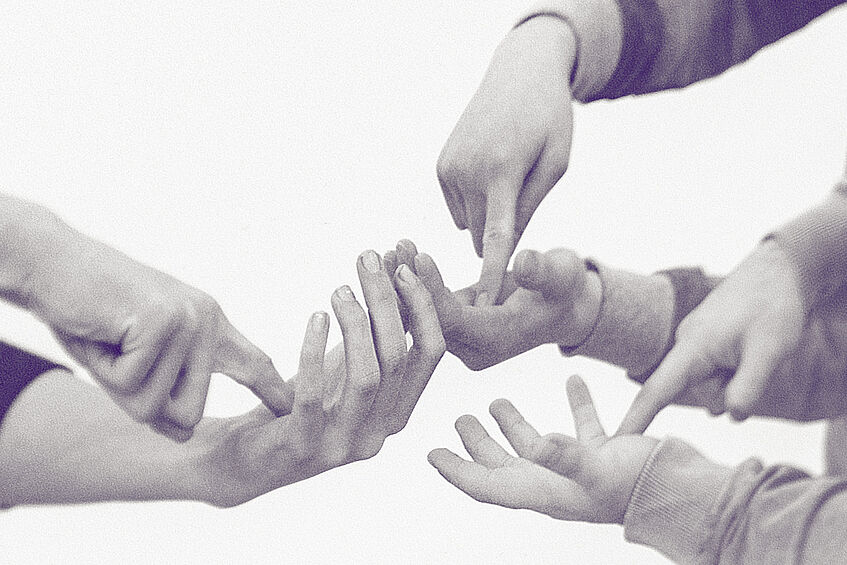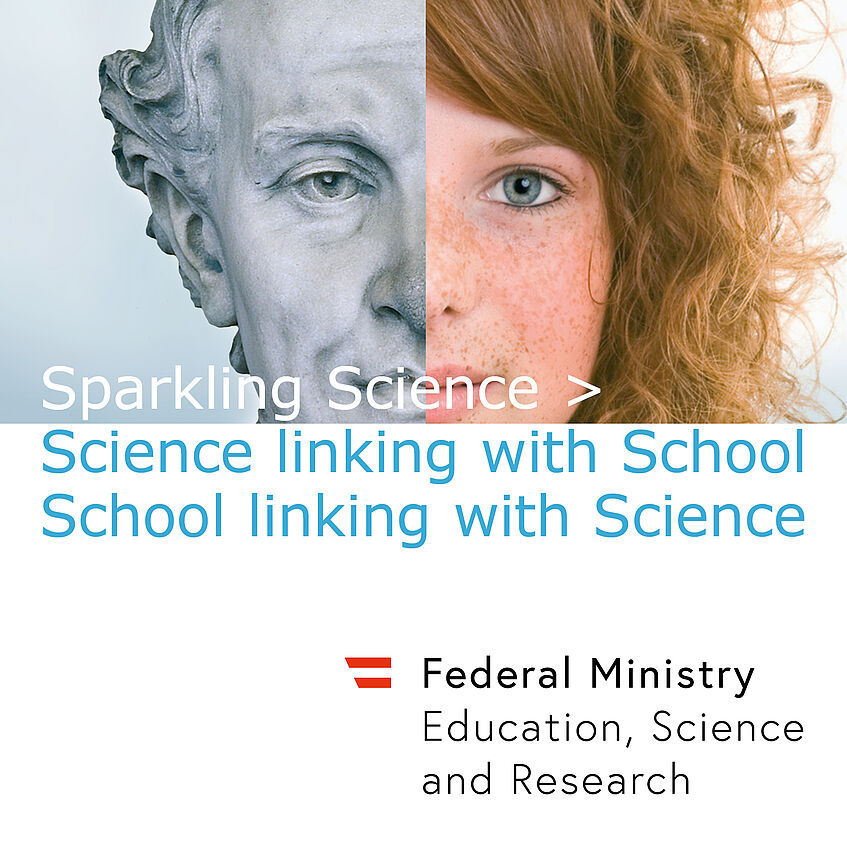Research Project Making Democracy. Negotiating Freedom, Equality and Solidarity among Adolescents
Research Project Making Democracy. Negotiating Freedom, Equality and Solidarity among Adolescents
In the ‘Making Democracy’ project we investigate, together with school students, how fundamental democratic norms are negotiated in the daily life of young people. What does ‘living together’ mean in a group, a family, a school class, or in society at large? In what ways are questions raised in daily life of personal autonomy and its restriction, of equality and discrimination, of solidarity and exclusion? How to shape democratic action and processes of democratization both on a small and a large scale?
In our research team of pupils, teachers and experts from the fields of social science, art, art education and media work we engage with these questions by means of participatory research methods and methods from critical art and cultural mediation. In smaller research groups, pupils carry out data collection and analysis and develop their own forms of presenting research results.
Day by day, young people negotiate the meaning of freedom, equality and solidarity in and outside school, thus ‘making’ democracy. By inquiring into everyday-life experiences, the ‘Making Democracy’ project shifts the focus of democracy research in an innovative way: the interest is not so much in how young people relate to the political system (i.e., to elections and party politics), but the focus is on their democratic canon of values and its significance for democratic participation and everyday political action. Although numerous findings show that the possibility to participate is central for the democratic consciousness of youths, such a focus is still a desideratum of democracy research. In this way, the ‘Making Democracy’ project makes a scientific and practical contribution to inspiring young people to participate in the shaping of society. To this end, they are taught qualitative research methods which enable them to carry out data surveys and interpretations on their own.
The project, hence, has a threefold research objective: the central focus is on how democracy is negotiated in everyday culture. In this way, assumptions of democracy theory concerning a supposed value conflict between demands of autonomy and community, or between individuality and solidarity can be tested in lived practice. And thirdly, by linking democracy theory, participatory research and critical art education, the project offers the opportunity to learn about how participatory research- and mediation-processes can contribute to civic education.
In addition to these scientific objectives, the project pursues the practical goal of strengthening the democratic attitudes of the young people involved, of supporting the idea of schools as places of lived democracy, and of methodologically expanding approaches of participatory research and critical art education, thus making the latter effective for civic education.
The research process will be realized in two rounds and in collaboration with the Wiener Mittelschule (WMS), respectively the Oberstufenrealgymnasium (ORG) Anton-Krieger-Gasse in form of cross-subject teaching. In the first year of the project two third-grade classes are part of the research team, in the second project year a seventh-grade class will participate. The project work with pupils will be realized in regular workshops. Team collaboration is structured in three phases. The first phase serves to introduce pupils to the topic of the project. The focus here is to see how different research methods are suitable for anchoring the questions of the project in the everyday world of the pupils. In the centre of the second phase is the development of more refined research questions, the acquisition of research methods (such as interview, group discussion, questionnaires), the survey of data and its analysis. In a third phase, the results will be represented in a theatrical performance.
‘Making Democracy’ is a research project located at the Department of Political Science, University of Vienna, in cooperation with trafo.K, diverCITYLAB and Wiener Mittelschule/Bundesgymnasium/Oberstufenrealgymnasium Anton-Krieger-Gasse.
Funded by the Austrian Federal Ministry of Education, Science and Research (BMBWF) as part of the "Sparkling Science" program
Research Team
Principal Investigator: Univ.-Prof. Dr. Oliver Marchart
Science/Education/Art: Mag. Elke Rajal, Mag. Nora Landkammer (2nd project year), Mag. Ines Garnitschnig (1st project year), Carina Maier, BA BSc (student assistant) (Department of Political Science), Renate Höllwart and Elke Smodics (trafo.K – office for art education and critical knowledge production), Aslı Kışlal and Anna Schober (diverCITYLAB – PERFORMANCE and THEATER laboratory), Ka Schmitz (artist and cartoonist)
WMS/BG/ORG Anton-Krieger-Gasse: the pupils of 3a, 3b (school year 2017/18) and 7b (school year 2018/19) and the teachers Mag. Ernst Auer, Mag. Josef Eder, Mag. Robert Fröhlich, Mag. Simone Hofer, Mag. Marc Michael Moser, Mag. Marco Ploner, Mag. Dr. Georg Rakowitz, Mag. Stefanie Schermann, Mag. Beate Wallner, Mag. Olaf Winnecke und Mag. Verena Zangerle
Scientific Consultant: Prof. Dr. Nora Sternfeld


